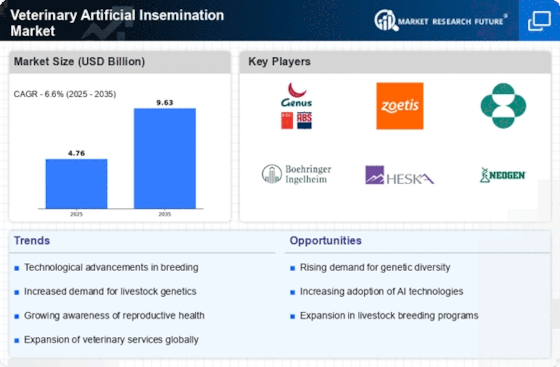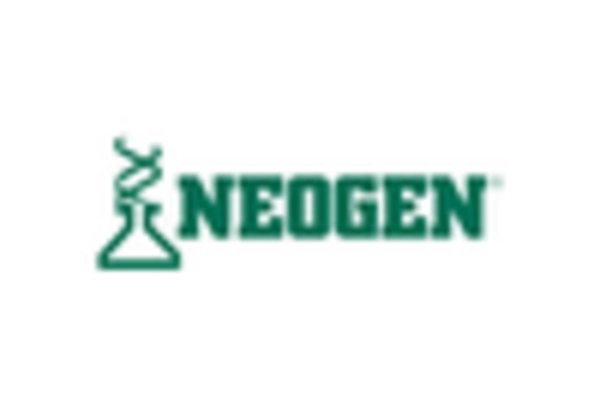Market Trends
Key Emerging Trends in the Veterinary Artificial Insemination Market
The market dynamics have been heavily influenced by the variety of species involved in veterinary AI. Although it has been extensively practiced in livestock breeding, especially cattle, there is increasing demand for AI services in companion animals, equines, and exotic species. Additionally, the market is experiencing increased awareness and education on the benefits of artificial insemination in the veterinary community. Veterinary professionals play a critical role in promoting AI adoption by providing reproductive health-related expertise, guidance, and services. In relation to market segmentation, the availability of AI services and equipment is key. This contributes to overall market dynamics through companies that provide a wide range of AI solutions, including semen collection and processing and insemination equipment. Recent developments in animal reproduction technologies and an increasing focus on improving breeding outcomes in the veterinary sector are driving significant trends in the field of veterinary artificial insemination. One main trend shaping this industry is the growing use of artificial insemination techniques in animal husbandry. Innovations taking place within reproductive technologies are fueling change within the marketplace for veterinary artificial insemination. Better semen collection, processing, and storage methods have improved efficiency within all aspects of AI procedures. A further trend observed in this market pertains to sexed semen technology, which has gained significant popularity over time since its inception. Using this method, however, allows breeders to influence sex during breeding, leading to desired outcomes. The globalization of the livestock business affects current trends in veterinary artificial insemination markets. The need for high-quality genetic material for the improvement of diverse animal populations' breeding stock is increasing due to the expansion of international trade in livestock genetics. The environment sustainability also increasingly shapes the decisions made by players in this industry because there are concerns about environmental impacts related to livestock farming. Hence, the greater emphasis on breeding strategies aimed at improving resource use efficiency as well as minimizing overall ecological footprints enables selection for animals with favorable traits such as feed conversion efficiency, disease resistance, or adaptability to different climates. Also reshaping market dynamics is the digitalization of veterinary artificial insemination services. Online platforms and mobile applications are being used more often to manage breeding records, schedule insemination procedures, and access genetic information. This digitalized transformation supports the efficiency of artificial veterinary insemination activities, simplifies communication between stakeholders, and ensures breeders have real-time access to relevant data, which ultimately improves overall breeding outcomes.


















Leave a Comment